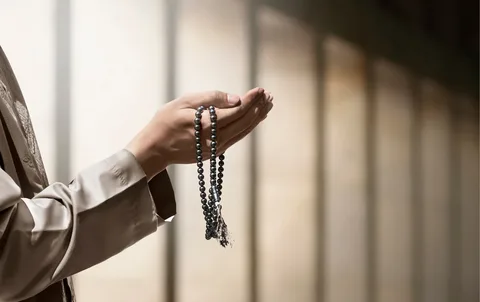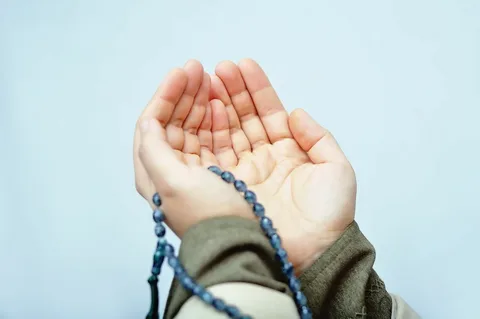The act of dua, or supplication, holds a significant place in Islamic tradition. It is a powerful means of communication between the believer and the Divine, seeking guidance, blessings, and forgiveness. In this article on Arabian Tongue website, we delve into the profound topic of “Dua of the Prophets,” exploring the practices of prominent prophets, the universality of dua, and the transformative impact it can have on our lives.
Definition of Dua

Dua, an integral part of Islamic practice, is a supplication made to Allah, expressing one’s needs, desires, and gratitude. The act of dua is deeply rooted in the Islamic tradition and holds immense significance in the lives of believers.
Significance of Dua in Islamic Tradition
In Islam, dua is considered a form of worship, reflecting the believer’s dependence on and connection with Allah. It is an acknowledgment of human vulnerability and a means to seek guidance, forgiveness, and blessings.
The Power of Dua
Examples from the Lives of Prophets
The lives of the prophets are replete with instances where they turned to Allah in prayer, illustrating the transformative power of dua. From Prophet Adam’s plea for forgiveness to Prophet Muhammad’s supplications for his community, these stories highlight the profound impact of sincere and heartfelt dua.
Understanding the Concept of “Dua of the Prophets”
The term “Dua of the Prophets” encompasses the supplications made by prophets, serving as a source of inspiration and guidance for believers. These prayers reflect the prophets’ deep spirituality, unwavering faith, and their role as exemplars for the Muslim community.
Dua of the Prophets
Prophet Adam (AS)
Prophet Adam, the first human and prophet, teaches us about humility and seeking forgiveness. His dua after the mistake in the Garden serves as a timeless example of acknowledging errors and turning to Allah with a repentant heart.
Prophet Ibrahim (AS)
Known as the friend of Allah, Prophet Ibrahim’s life is filled with dua. From his plea for the well-being of his family to his supplications for guidance, his example teaches believers to turn to Allah in every aspect of life.
Prophet Musa (AS)
Prophet Musa’s story is marked by his unwavering trust in Allah. His dua during moments of trial and his reliance on divine guidance showcase the power of turning to Allah in times of difficulty.
Prophet Muhammad (SAW)
The final messenger, Prophet Muhammad, set a comprehensive example of dua in his life. His supplications ranged from seeking guidance for his ummah to expressing gratitude and seeking protection from harm.
Common Themes in Prophetic Duas
Seeking Guidance
A recurring theme in the dua of the prophets is the quest for divine guidance. Their prayers often reflect a deep desire for clarity and the path that aligns with Allah’s will.
Gratitude and Praise
Prophetic dua emphasizes gratitude and praise for Allah’s countless blessings. Acknowledging these blessings is a fundamental aspect of the prophets’ supplications.
Seeking Forgiveness
The humility of the prophets is evident in their frequent pleas for forgiveness. Their acknowledgment of human shortcomings and the quest for divine mercy resonate in their prayers.
Praying for Others
Prophetic dua extends beyond personal needs, with many prophets praying for the well-being and guidance of their communities. This selflessness is a key aspect of their supplications.
Importance of Personalized Duas
- Connecting with the Divine: While following established prayers is essential, personalized duas strengthen the connection between the believer and Allah. The prophets’ examples encourage believers to pour their hearts out in prayer.
- Strengthening Faith through Dua: Personalized duas contribute to the strengthening of faith. When believers see the manifestation of their supplications, it deepens their trust in Allah and enhances their spiritual journey.
- Healing and Well-being: Prophetic examples include prayers for physical and spiritual healing. Believers are encouraged to seek Allah’s mercy for recovery from ailments and overall well-being.
- Guidance in Difficult Decisions: The prophets’ dua often sought guidance in times of uncertainty. Believers can emulate this by seeking divine direction in crucial life decisions.
- Patience and Perseverance: Dua is a means for seeking strength during challenging times. The prophets’ prayers for patience and perseverance inspire believers facing trials.
- Finding Comfort in Times of Adversity: The prophets’ steadfastness in dua during trials serves as a model for finding solace in Allah’s presence amid life’s challenges.
- Lessons from Prophetic Duas on Patience: The patience exhibited by the prophets in awaiting the fulfillment of their supplications teaches believers the virtue of perseverance.
Tips for Effective Dua

Dua, or supplication, is an essential aspect of worship in Islam. Here are some tips for making your dua more effective:
- Begin with Praise and Gratitude (Hamd and Shukr): Start your dua by praising and thanking Allah. This helps to cultivate a positive and grateful mindset.
- Be Sincere and Humble: Approach your dua with sincerity and humility. Recognize your dependence on Allah and express your needs with a sincere heart.
- Choose the Right Time: While you can make dua at any time, there are certain times and situations considered more favorable, such as during the last third of the night, on Fridays, during the last hour of Friday (Jumu’ah), while fasting, and after obligatory prayers.
- Face the Qiblah: While not obligatory, facing the Kaaba in Mecca during dua is a recommended practice.
- Use Allah’s Names and Attributes: Incorporate the names and attributes of Allah in your dua. For example, you might ask for Allah’s mercy, forgiveness, or guidance.
- Repeat and Be Persistent: Prophet Muhammad (peace be upon him) encouraged repetition in dua. Be persistent and patient in your supplications, understanding that Allah’s timing is perfect.
- Include Others in Your Dua: Pray not only for yourself but also for the well-being and guidance of others. Including others in your prayers demonstrates selflessness and compassion.
- Confidence and Certainty: Approach your dua with confidence and certainty that Allah hears and responds. Trust in His wisdom and plan.
- Avoid Hasty Requests: Take your time when making dua. Avoid being hasty or impatient. Remember that Allah knows what is best for you, and His timing is perfect.
- Repent and Seek Forgiveness: Before making your requests, seek forgiveness for your sins. A repentant heart is more likely to receive Allah’s mercy.
- Use Comprehensive Dua: Prophet Muhammad (peace be upon him) taught many comprehensive supplications. Learn and use these prayers, such as the du’as found in the Quran and Sunnah.
- Combine Dua with Action: While dua is essential, it’s also important to take practical steps to achieve your goals. Combine your supplications with sincere efforts and hard work.
FAQs
Can anyone make dua?
Yes, dua is an open communication between the believer and Allah, accessible to all.
How often should one engage in dua?
Consistency is key. Daily engagement in dua, both in routine and challenging times, is encouraged.
Are there specific times when dua is more likely to be accepted?
While dua is welcomed at all times, certain moments, such as during prayer or the last third of the night, are considered auspicious for acceptance.
Can dua change the course of destiny?
Dua is a powerful tool, and while it can influence outcomes, the ultimate course of destiny is determined by Allah's divine wisdom.
What is the etiquette of making dua in Islam?
The etiquettes include facing the qibla, raising hands in supplication, starting with praise for Allah, and concluding with blessings upon Prophet Muhammad (SAW).
Conclusion
In conclusion, the dua of the prophets serves as a guide for believers seeking spiritual connection and guidance. The multifaceted nature of their supplications, ranging from seeking forgiveness to praying for others, provides a comprehensive model for believers. Embracing the power of personalized dua, understanding its role in building resilience, and dispelling common misconceptions contribute to a fulfilling spiritual journey.


